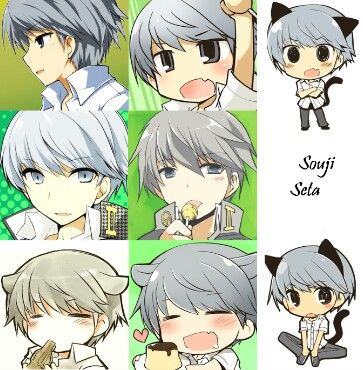Yu meets up with his old friends again in TV World. He encourages Sho to form relationships, but she refuses as she believes she can only understand people by fighting with them.
Japanese words that start with “sou” and end with the approbation “desu” are generally met with either positive or negative approbations depending on intonation.
Character Description
Yu is an independent and determined individual who takes his responsibilities very seriously. This can be seen through his actions: leading the Investigation Team side-by-side while making timely decisions that benefit everyone involved in his group.
He’s a social person who wants to form bonds and feel accepted by his surroundings; this can be seen through his interactions with members of the Investigation Team and how quickly he forms bonds with them.
Su (written su) in Japanese is an interjection that conveys different meanings depending on its context and intonation, such as approbation, reiteration or question. Additionally, su can even serve as an emphatic negation with phrases such as [nande]/do na ka te/ and [doushite/do shi te/.
Japanese doesn’t contain a sound for “yi,” so linguists have devised symbols for it. Once considered part of hiragana y, now encoded as katakana YI () in Unicode.
Personality
Soujiyi possesses a strong moral compass; however, he can sometimes be humorously cruel toward his friends – particularly Yosuke and Teddie as he can express how irritating they can be to him directly.
He holds his friendships in high regard and goes the extra mile to protect them, such as saving Kanji Tatsumi, Rise Kujikawa and Naoto Shirogane during the Twisted Shopping District, or standing up for Nanako against her father.
Persona 4’s characters all exhibit personalities which depend on how others around them perceive and interact with them; this holds especially true during its climactic section, where his relationships with the Investigation Team change depending on his responses to events.
Physical Appearance
Yu wears the traditional school uniform of Yasogami High School along with gray-framed glasses, and wears an additional black blazer over his uniform while in battle.
“Sousou” in conversation takes on various meanings depending on context and tone of voice, serving either as filler, interjection or approbation depending on context and tone. It could serve as filler to break up dialogue or interjection similar to “well,” “let’s see,” or “um.” Occasionally it can also serve as an affirmation of sorts.
Nanako then appears and welcomes the protagonist home, telling him about Marie being on TV as an attractive new weather girl. When confronted by enemy attacks, the protagonist uses Zio, the P4 hero’s first basic attack that uses lightning bolts from their palm to strike lightning bolts from it at enemies before unleashing it in front of their hand; also useful for protecting allies against attacks and helping zone effectively.
Relationships
“Sou” can be used as an affirmation or approbation in this instance if spoken with an appropriate intonation (depending on context and tone of voice). To avoid confusing these two words when speaking casually in Japanese, be sure to practice both individually.
The idea is that long-term relationships aren’t necessary in order to enjoy life, which contrasts with traditional Korean values of family as an avenue to personal and familial fulfillment.
Young Japanese often view abortion as an acceptable solution when faced with an unwanted or unplanned pregnancy (Raymo & Iwasawa, 2009). Yet premarital pregnancy remains taboo among close friends due to culturally sanctioned insularity of young Japanese society and familial loyalty; though close friendships outside immediate families have increasingly become possible for young Japanese.

